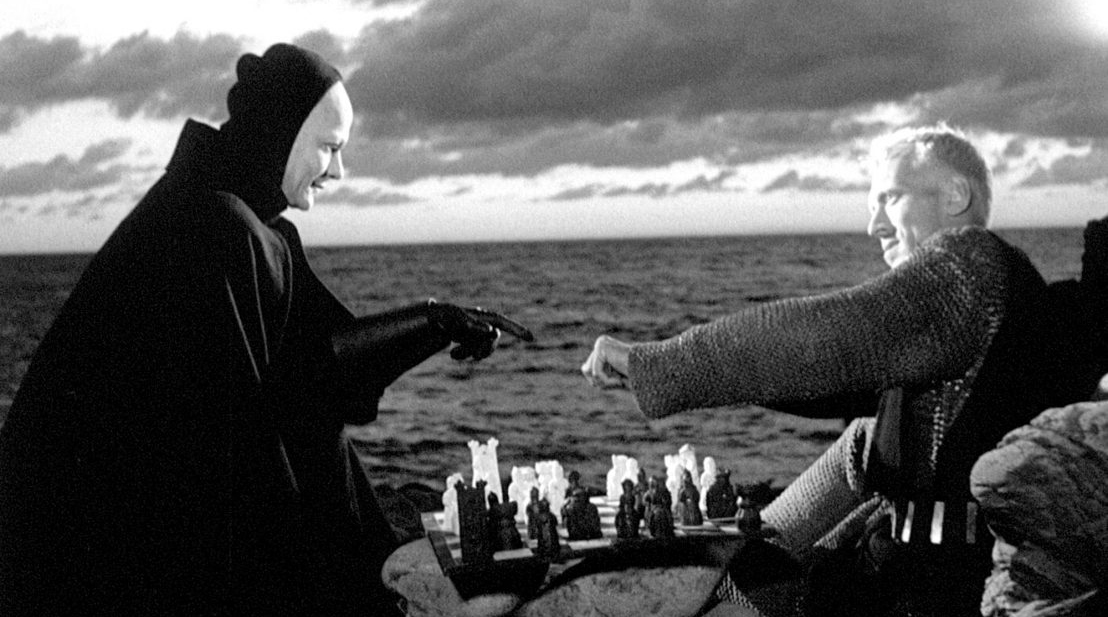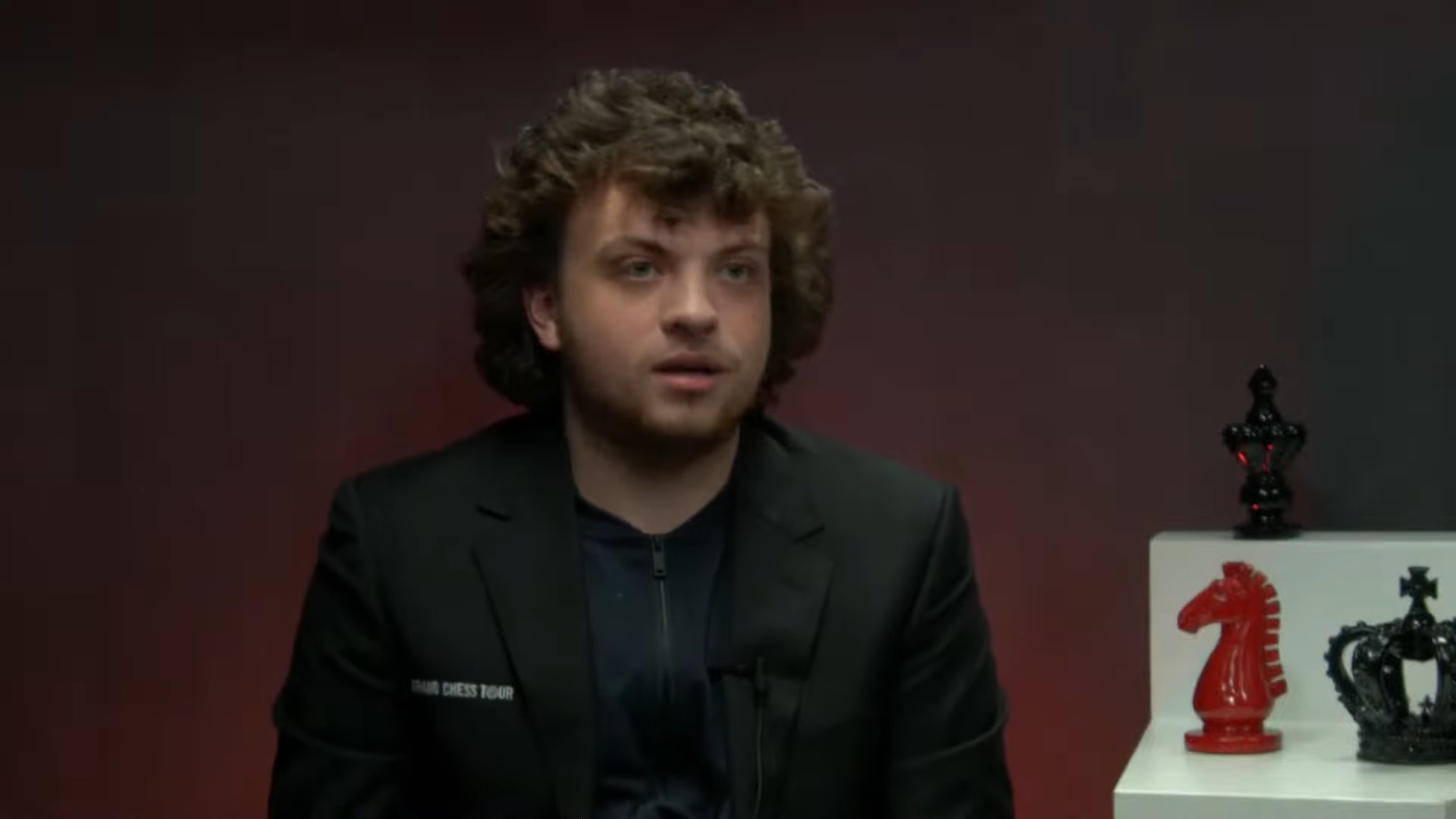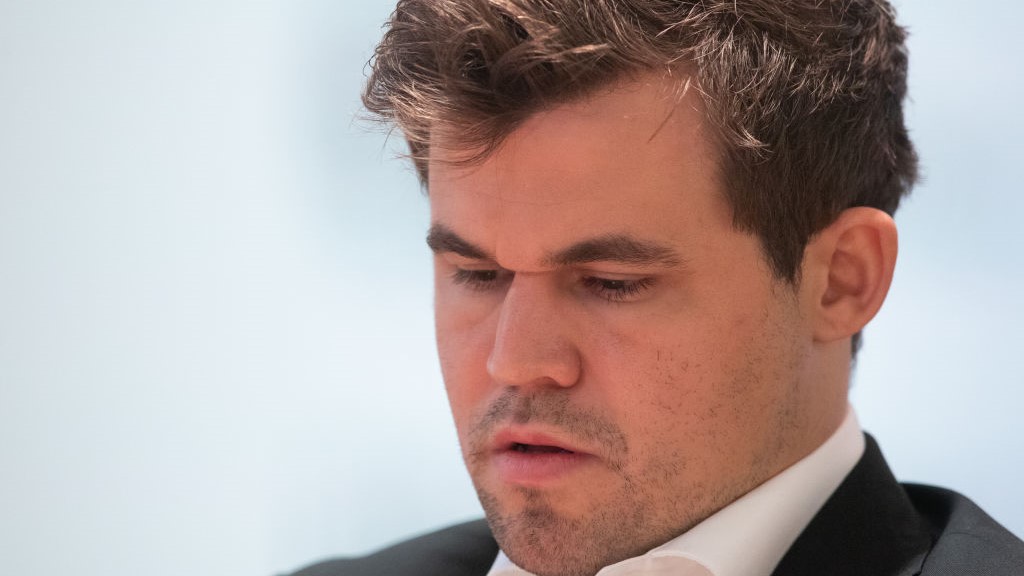Chess cheating scandal re-erupts as accused files $400 million suit against world champion
Magnus Carlsen "believes that when it comes to chess, he can do whatever he wants and get away with it."

They say no publicity is bad publicity, and boy is chess giving that old adage a workout right now. The game of kings does not have some pure and unsullied history—one of the reasons the story of chess can be so much fun is all the shenanigans and scandals over the years—but what's going on at the moment has come to be dubbed the biggest scandal in its history. That may not be hyperbole.
The long-and-short is that, after grandmaster Hans Niemann defeated world champion Magnus Carlsen at the Sinquefield Cup in early September, Carlsen implied that Niemann had cheated. The charge acquired widespread coverage before Carlsen was drawn against Niemann in an online tournament, resigned after one move, then came right out and accused Niemann of cheating in a statement.
Here's the detailed rundown. Subsequent to all of that, Chess.com came forward with its own report alleging that Niemann had cheated in 'more than 100' games.
So the accusations have flown thick-and-fast at Niemann, and the Chess.com report certainly shows the player admitting to cheating on a past occasion. There's been no hard proof about what happened or didn't in the Carlsen game, however, and in the absence of evidence the internet has constructed its own edifice of half-truths and nonsense (such as the completely made-up idea Niemann used 'anal beads' to receive signals).
Niemann has continued to insist on his innocence: and now he's taking it to court. The grandmaster's attorneys have filed suit in Missouri, which is Niemann's home state.
"Niemann is a 19-year-old, self-taught chess prodigy," begins the filing. "He brings this action to recover from the devastating damages that Defendants have inflicted upon his reputation, career, and life by egregiously defaming him and unlawfully colluding to blacklist him from the profession to which he has dedicated his life."

The suit is being brought against Carlsen and multiple other defendants, including Carlsen's Play Magnus chess company, Chess.com, Daniel Rensch, and Hikaru Nakamura. Carlsen is definitely some sort of prime target however, as the lawyers zero-in on arguably the greatest chess player the world has ever seen and, basically, paint him as a spoilt child intent on monopolising the sport by fair means or foul.
The biggest gaming news, reviews and hardware deals
Keep up to date with the most important stories and the best deals, as picked by the PC Gamer team.
"Carlsen, having solidified his position as the 'King of Chess,' believes that when it comes to chess, he can do whatever he wants and get away with it," write Niemann's lawyers. They go on to outline the circumstances around the pair's Sinquefield Cup match, pointing out that had Carlsen won he would have remained on-track for some notable historical records, including a possible FIDE 2900 rating, the highest-ever.
"Making matters worse for Carlsen, Niemann embarrassed Carlsen by playfully taunting him during his post-match interview," reads the suit. What Niemann said after the game was "It must be embarrassing for the world champion to lose to me. I feel bad for him."
"Notorious for his inability to cope with defeat, Carlsen snapped," continues the filing. "Enraged that the young Niemann, fully 12 years his junior, dared to disrespect the 'King of Chess,' and fearful that the young prodigy would further blemish his multi-million dollar brand by beating him again, Carlsen viciously and maliciously retaliated against Niemann by falsely accusing Niemann, without any evidence, of somehow cheating during their in-person game and demanding that the organizers of the Sinquefield Cup immediately disqualify Niemann from the tournament."
Let's take a breath, because this suit is full of things to say about Carlsen. Shortly afterwards it describes the above demand as "corrupt and cowardly", goes on to detail Carlsen's "defamatory accusations", and so on.
This is an extremely confrontational account of events, and one which suggests motives for Carlsen's actions that are essentially unproveable. It does not even allow that Carlsen may have made a mistake: no, this was a deliberate plot to bring Niemann low.
Such is the nature of an adversarial system, anyway, and Carlsen's co-defendants come in for some pretty similar treatment. What is most incendiary, however, is that Niemann's lawyers end up alleging that these entities all conspired against Niemann at Carlsen's behest, in an effort to ruin his career.
"[Carlsen] unleashed the full force of his newly-broadened media empire to publicly bolster those allegations and drown out any legitimate sources of opposition that demonstrated why Carlsen’s allegations were untrue." Immediately after Carlsen's withdrawal from the Sinquefield Cup Chess.com banned Niemann from its website, deleted his slack account, and banned him from future Chess.com events.
"By design, this sudden ban, at the precise time that Carlsen accused Niemann of cheating against him, added instant credibility to Carlsen’s false allegations and suggested that they were true. Otherwise, there would be no reason for Chess.com to suddenly ban Niemann immediately after he defeated Carlsen.
"To bolster this unprecedented joint ban, which effectively blacklisted Niemann from professional chess, Nakamura leveraged his platform as Chess.com’s top streamer and credibility as a top chess player to engage in an all-out blitz of defamatory accusations to further confirm that Carlsen accused Niemann of cheating and to make it appear that those accusations are true."
The suit goes on to list various things Nakamura said on his streams, which are pretty up-front about his belief that Niemann cheated. It says that the scale and spread of accusations was such that Niemann's protestations of innocence were in vain, and then comes the only paragraph where perhaps the most infamous element of this scandal is referenced:
"Conspiracy theories began going viral on the internet, no longer concerned with whether Niemann actually cheated but, rather, how he could have possibly cheated in an over the board game with strict anti-cheating protocols," reads the suit. "These swirling conspiracy theories were so outrageous that they garnered the attention of, among many others, Elon Musk, who spread them in posts on Twitter, and Stephen Colbert, who spread them on The Late Show with Stephen Colbert."

There's much more granular detail in the suit, but it also says part of the conspiracy was Chess.com releasing its "one-sided, self-serving and defamatory hit piece" on the morning of a big tournament in which Niemann was hoping to impress and begin salvaging his credibility. It further details what it describes as attempts to blacklist Niemann from professional chess (such as Nakamura raising the prospect of whether he should be allowed to compete at the US Open), all of which are elements of this over-encompassing Carlsen conspiracy theory, before moving onto the five charges.
These are slander, libel, violation of the Sherman act, Tortious Interference with Contract and Business Expectancies (this is Niemann's various contracts, tournament entries etcetera), and then… drum roll please… civil conspiracy.
The violation of the Sherman act charge is especially interesting as this is an antitrust federal statute: that is, it's saying that Carlsen et al were in violation of this by trying to kneecap a potential competitor. All charges are made against all defendants, and for four of the five Niemann's lawyers are seeking an award of $100,000,000 in damages. For the fourth charge, the contract-related one, they seek damages to be determined by the court.
Just when you thought it had all quietened down, eh. It'll certainly be interesting to see Hikaru Nakamura's reaction video to this one (neither he nor Carlsen have commented on the suit). And finally: it's worth bearing in mind this is a completely one-sided document, and I have no doubt that the figures and entities defending it can afford some extremely good lawyers.
A few obvious facts also stand in mitigation for Carlsen, as least as it relates to all the 'keeping Niemann down' side of things. These are, first of all, that Carlsen has never ducked the toughest competition. Second of all, and this relates to Carlsen trying to keep his fiefdom intact, the world champion has announced his intention to vacate the title. Which would be an odd move if what Niemann's lawyers are saying was true.
That said, stranger things have happened, and there's no doubt that this scandal gathered pace at a rapid speed, and whatever truth there may be is long-lost in the maelstrom. We will probably never know for sure what went on in that Sinquefield Cup game between the pair, even though it's destined to be pored-over for years to come, but no-one could deny that the 'cheating' charge will linger around Niemann for the rest of his career. There's also the question of whether organisations should be able to gatekeep a player out of the tournament circuit, which is after all how chess grandmasters make a living, without firm proof of wrongdoing.
One thing is certainly clear though: Niemann says he's no cheat, and now it's all-out-attack on those who say he is.

Rich is a games journalist with 15 years' experience, beginning his career on Edge magazine before working for a wide range of outlets, including Ars Technica, Eurogamer, GamesRadar+, Gamespot, the Guardian, IGN, the New Statesman, Polygon, and Vice. He was the editor of Kotaku UK, the UK arm of Kotaku, for three years before joining PC Gamer. He is the author of a Brief History of Video Games, a full history of the medium, which the Midwest Book Review described as "[a] must-read for serious minded game historians and curious video game connoisseurs alike."

